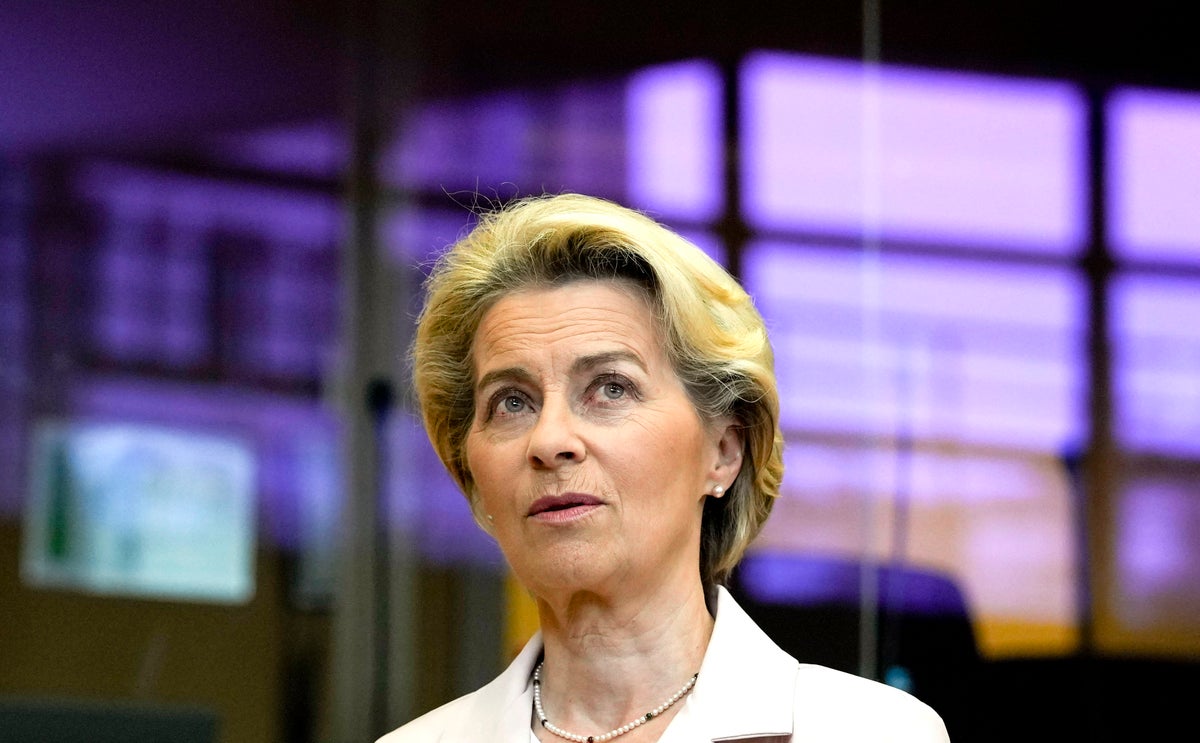
European Union Commissioners were putting the finishing touches early Wednesday to a drastic plan to make sure that any Russian cutoff of its natural gas supplies to the bloc will not fundamentally disrupt industries and send an additional chill through homes next winter.
The European Commission is set to present its proposals later Wednesday, so that EU member states can discuss them at an emergency meeting of energy ministers next Tuesday. For it to be approved, national capitals would have to consider yielding powers over energy policy to Brussels.
The last-minute discussion comes at a time when a blog post from the International Monetary Fund has warned about the power Russian President Vladimir Putin could wield by weaponizing energy exports and choking off the 27-nation bloc.
“The partial shutoff of gas deliveries is already affecting European growth, and a full shutdown could be substantially more severe,” the IMFBlog warned. It added that gross domestic product in member nations like Hungary, Slovakia and the Czech Republic could shrink by up to 6%.
Italy, a country already facing serious economic problems, “would also face significant impacts.”
EU economic forecasts last week showed that Russia’s war in Ukraine is expected to wreak havoc with economic recovery for the foreseeable future, with lower annual growth and record-high inflation. The disruptions in Russian energy trade threaten to trigger a recession in the bloc just as it is recovering from a pandemic-induced slump
Since Russia invaded Ukraine, the EU has approved bans on Russian coal and most oil to take effect later this year, but it did not include natural gas because the 27-nation bloc depends on gas to power factories, generate electricity and heat homes. Now, it fears that Putin will cut off gas anyway to try to wreak economic and political havoc in Europe this winter.
Such threats have forced the bloc’s head office to make a plan centered on energy cuts and savings that might make for a much colder winter, but one without massive disruptions.
“We are working on the worst possible scenario,” said EU spokesman Eric Mamer. “And that scenario — an assumption, therefore — is that Gazprom would no longer deliver any gas ... to Europe.”
The 27 Commissioners and experts were still plotting how to spread the pain of cuts equally among member states under the plan. Up to the last hours, EU officials were putting final touches on how the proposals would look, including how far guidance would go and where mandatory rules would have to kick in.
The aim is to ensure essential industries and services like hospitals functioning, while others would have to cut back. That could include lowering heat in public buildings and enticing families to use less energy at home.
EU nations and the Commission have gone on a buying spree to diversify its natural gas sources away from Russia, but they are still expected to fall far short of providing businesses and homes with enough energy in the cold months.
Even if the EU has enough gas to keep the lights on and factories running right now, it does so at painfully high prices that have fueled runaway inflation and caused public uproar.
Russia has cut off or reduced gas to some EU countries, and there are fears that the energy crisis will get worse if Moscow does not restart a key pipeline to Germany after scheduled maintenance ends Thursday.
“We already have 12 countries, or in certain cases companies within countries, that from one day to the next have experienced disruptions, either full or partial flow from gas from Gazprom,” Mamer said. “It is impossible for us to predict how Gazprom is going to act.”
The energy squeeze is also reviving decades-old political challenges for Europe. While the EU has gained centralized authority over monetary, trade, antitrust and farm policies, national capitals have jealously guarded their powers over energy matters.
The European Commission has spent decades chipping away at this bastion of national sovereignty, using previous supply disruptions to secure gradual gains in EU clout. The five-month-old Russian invasion of Ukraine is now the starkest test of whether member countries are willing to cede more of their energy powers.
During the COVID-19 pandemic, member states did join in common action to help develop and buy vaccines in massive quantities in an unprecedented show of common resolve in the health sector.
“This is a moment for Europe to build upon the decisive action and solidarity displayed during the pandemic to address the challenging moment it faces today,” the IMFBlog said.







